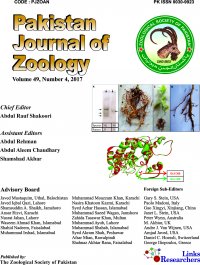The aim of the present study was to investigate the in vivo anti-urolithiatic effects of both peel and pulp extractives of Cucumis melo L., in mice model of nephrolithiasis. Extractives of peel and pulp were obtained using hot and cold methods. Ethylene glycol (0.75% V/V) was used IP for 10 days to develop mice model of nephrolithiasis. Extracts were administered at a dose of 400 µg/g for 11 – 21 days. Outcome measures included serum creatinine, uric acid and BUN levels. Significant differences exist with regards to primary and secondary metabolites between both peel and pulp extractives. After 21 days of treatment in mice, only chloroform (CHL) extractives of peel and pulp demonstrated significant improvements in serum creatinine (Peel: N; 1±0.44, PC; 1.4±0.62, CHL; 0.43±0.18, p<0.05, Pulp: CHL; 0.8±0.26, p<0.05) and BUN levels (Peel: N; 13.2±0.53, PC; 9.1±0.97, CHL; 9.4±0.84, p<0.05, Pulp: 10.5±0.7, p=0.05) compared to positive and normal controls, respectively. Moreover, uric acid levels were improved by methanol extract of peel (MeOH; 4.8±0.4, p<0.05) and chloroform extract of pulp (PC; 7.1±0.4 CHL; 6.2±0.7, p<0.09). Out of all the extractives of Cucumis melo L. peel and pulp, only chloroform extract exhibited significant anti-urolithiatic activity as evident from serum creatinine, uric acid and BUN levels.










